Many social networks have come and gone over the years, but at the moment only two really stand out: Facebook and Twitter. Facebook in particular isn't simply where people post what they had for dinner, but where parties are arranged, activities are monitored, photos are uploaded, discussions are had and reasons not to add your boss to your Friends list are made painfully, painfully clear.
There are good reasons not to join, including privacy and the fact that the service changes its look every five minutes or so, but it's still where everybody is at the moment, and where you need to be if you want to join in.
Beyond Facebook, smaller networks still have their place. They need to have a specific purpose that's going to help you out in a practical way, like www.myfitnesspal.com for weight loss and dieting, or at least a critical mass of existing users, like www.pinterest.com, so you can find like-minded people to chat with.
Facebook alternatives
What if you don't like Facebook at all? There's nothing wrong with making an account and not entering any personal details if you only want to watch (though you'll need to tell your friends what name you did so under, and find a less creepy way to explain it than that).
It's worth being on in some form though. It may go the way of Friendster and MySpace in time, but that time isn't now. If nothing else, more and more sites and services are using it for sign-in and authorisation.
One advantage of Facebook that isn't obvious from the outside is that many of these other networks can connect to it in the form of apps and API calls. This lets it act as a social hub for both its own and other services, and saves you the effort of persuading your existing friends list to join you elsewhere.
Foursquare, for instance, is the most popular location tool, having turned 'checking in' into a game. If friends are intrigued and join the service directly, you all get the advantages - along with the special bonus that they can't blame you for wasting their time by hyping them up.
Get daily insight, inspiration and deals in your inbox
Sign up for breaking news, reviews, opinion, top tech deals, and more.
Sharing isn't necessarily a good thing though, and more and more software defaults to broadcasting everything you do without asking you. Spotify and Netflix both make your entertainment choices public by default, for example, and this isn't for your benefit - it's because every post they make acts as a personalised advert to your friends.
Even so, some tool integration works very well. Photos for instance can be edited and uploaded from almost any consumer editor, and that's always worth doing.
Signal to noise
The downside of one site holding all this stuff is that its interface doesn't scale very well, and if you add hundreds of friends, you'll soon be drowned in a torrent of irrelevance.
The first step to cleaning this up is to try to keep your contacts list to a reasonable size. It doesn't have to be as brutal as only adding people you know in real life, but you absolutely shouldn't add every stranger who asks. By default they get to see your posts, your holiday photos, your location... all kinds of sensitive data.
At the bare minimum, visit the Privacy Settings option and make sure your updates and info are limited to Friends, not Friends of Friends. Then, every few months, prune anyone you never speak to or whose posts don't interest you. It's not rude, whatever they might think. It's just common sense.
Step two? That's the biggie - moving away from the default web interfaces and tools and using a few third-party tweaks and clients that give you much more control over your online life. Flick your eyes to the right for our recommendations.
Websites for your social life
11. Twitter client
Tweetdeck
www.tweetdeck.com
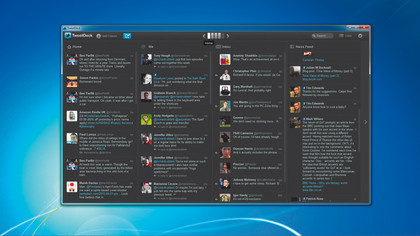
Your complete social networking command centre, bringing Twitter and Facebook into one not-so-simple view. By making columns for news, responses, direct messages and more, you can see everything that flows into your life in real-time. Just don't expect it to relieve the information overload. Quite the reverse. Bring some aspirin.
12. Social media aggregator
Alternion
www.alternion.com
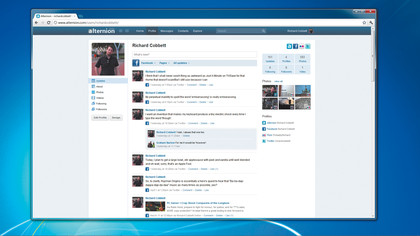
If you don't want to use Facebook to bring your various social networking accounts together in one place, try this alternative. It connects to over 200 of them, including emails, and makes it easy to keep track of what's going on, cross-post to multiple services, and filter your stream based on what you want to see. It also looks daringly similar to Facebook. Nobody tell Zuckerberg's lawyers about that…
13. Twitter search
Snapbird
www.snapbird.org
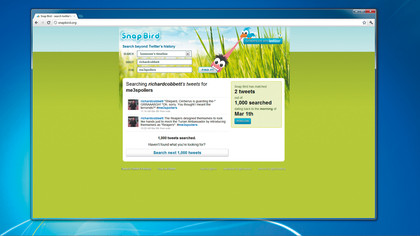
Twitter's built-in search engine is one of the most pathetic attempts at drilling through mountains of data you'll ever see. Thankfully, Snapbird exists. This tool will take you straight to the tweet you want, especially if it's related to your own timeline, as well as searching far further back into the archives than the official version ever bothers to. One day, hopefully it won't be needed. For now though, use it and be glad.
14. Facebook Browser Plugin
Social Fixer
www.socialfixer.com
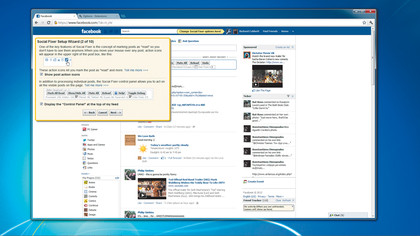
What's good for Facebook isn't necessarily good for you. SocialFixer is a browser plugin (available for all major platforms except Internet Explorer) that comprehensively overhauls the experience. It'll hide posts you've read. It'll highlight what's new. It'll even give you information Facebook likes to keep quiet about, like who's un-friended you - if not why. It may occasionally break, but updates won't be far away.
15. Facebook Photo Archiver
Pick&Zip
www.picknzip.com
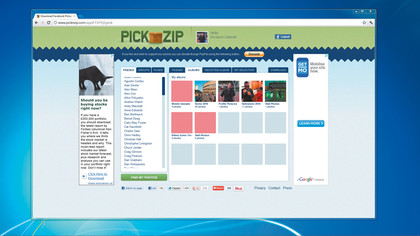
16. Social Media Tracking
SocialMention
www.socialmention.com
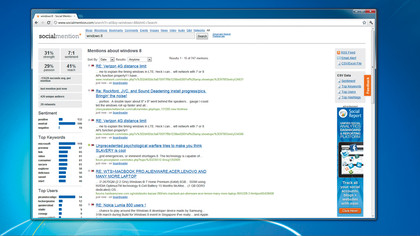
If your social networking is more professional than personal, SocialMention is a great tool for tracking mentions of yourself, your company, news stories, or anything else that's breaking. You'll also find the kind of stats that marketing types kill for, including sentiment, hashtags, and the most popular users using the term.
Apps for your social life
17. Tweetbot - £1.99
The best Twitter client for iOS, especially if you're checking your feed on an iPad. Twitter's own app is good enough for casual tweeters, but this is more efficient for heavy use. On Android devices though, it's a decent option.
18. Foursquare - Free
Check in at locations around the world, either to tell your friends where you are, or to compete with others for virtual mayorship of them. The Foursquare app connects to Facebook, and works better than its equivalent Places tool.
19. Camera+ - 69p
Upgrade the largely useless iPhone camera app with this one and you'll get essential features like burst shooting, image stabilisation and proper in-app editing with a wide range of filters - all for less than the price of a cup of coffee.
20. Beejive IM - Free/£6.99
Available for iOS, BlackBerry and Android, Beejive is the best of the admittedly small IM map market. Connect to MSN, GTalk, AIM and more and stay connected wherever you go. It costs £6.99 for all platforms, with a basic free version available for Android.